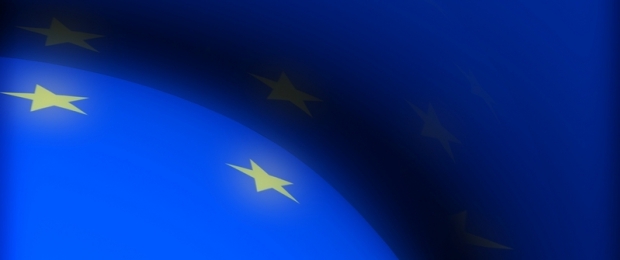
Europe's emerging political union
As many Darwinians believe that evolution has progressed not steadily, but through occasional, sudden spurts. The European Union may be evolving in a similar way. The collapse of Communism in 1989 propelled the EU towards monetary union: Chancellor Kohl thought that sacrificing the D-mark was the price that Germany had to pay for its partners to accept a united Germany. This year is likely to prove just as significant a landmark in the EU's history. For the launch of the euro, the resignation of the European Commission and the war in Kosovo are all helping a more solid European political identity to emerge.
The euro will not lead to "political union", in the sense of ever-greater centralisation of tax and budgetary policy, because most governments do not want that. But the euro is affecting the way that non-Europeans perceive the EU. Many of the Americans who predicted that the Europeans would never have the political will to push ahead with EMU now accept that the EU is more than a collection of nation-states bound together in a free-trade area, and that they will have to treat it as a whole. That increased respect will, like EMU itself, encourage the Europeans to appreciate how many interests they have in common. The resignation of Oskar Lafontaine has helped the euro's international image by ending the public feuding between the EU's central bank and its finance ministers.
The resignation of the European Commission will trigger a wide-ranging and long overdue debate on the reform of the EU's institutions. The European Parliament, whose investigations of mismanagement and corruption forced the resignation, has at last shown voters that it has a real job to do: calling the commissioners to account. The fact that the Commission is now as accountable to the Parliament as to governments worries the latter: they cannot influence the Parliament – which can be unruly, disorganised and swayed by lobbyists – as easily as the Commission.
In any case the governments agree that the Commission needs a shake-up. The arrival of a new set of commissioners, under Romano Prodi, offers an excellent opportunity for some radical thinking on how that institution is organised and held to account. To take just one example, there may be a case for splitting the Commission's job of policy-making, which it has done quite well, from its job of running spending programmes, which it has often made a mess of. Thus independent agencies could take over responsibility for the implementation of Commission policies and programmes on agriculture, regional aid, foreign aid and R&D. Another agency could run competition policy, where the Commission has shown itself too weak – especially on state aid cases – to act as an independent umpire. If Europe's voters believe that the institutions are undergoing serious reform, they may become less hostile to the EU.
Finally, NATO's war against Serbia – which continued as this Bulletin went to press – will help to shape, and probably to strengthen, Europe's embryonic common foreign and security policy (CFSP). Even before the war began, the British-French initiative to create a European defence capability within NATO was prompting the Clinton administration to take the CFSP more seriously.
The European powers which matter – Britain, France and Germany – have been united in their support of NATO bombing and have all taken part. That has impressed many of the Americans who normally berate the Europeans for not contributing enough to the security of their own continent. The war in Kosovo has brought home to the various peoples of the EU that many of their fundamental foreign policy interests are similar: most Europeans, whether they live in Barcelona, Birmingham or Bologna, are horrified by the ethnic cleansing, worried by the floods of refugees and determined that something should be done to stop Milosevic.
The past decade has seen the gradual emergence of a new doctrine in international relations: that countries have the right to intervene in each others' affairs for humanitarian reasons. During the Cold War the risk of a world war made such interventions too risky. But the Kosovo crisis has shown that most of the NATO governments and peoples now accept the new doctrine. And that makes it urgent for European governments to speed up their efforts to improve their capability to deploy troops on peace-making or peace-keeping missions. If Europe had had a more effective CFSP at the start of the 1990s, when Yugoslavia began to break up, it would have stood a much better chance of stopping Milosevic before he had done so much damage.
Next year EU governments will embark on another round of treaty revisions. They will almost certainly focus both on institutional reform, including the future of the Commission, and on strengthening the CFSP. Hopefully, those negotiations will better define that elusive concept of political union, so that it means not only more effective and accountable institutions, but also an EU that is stronger and more respected in the world.
